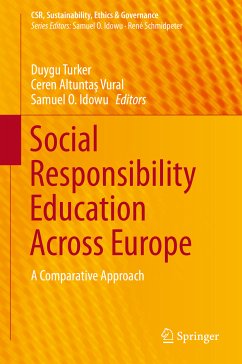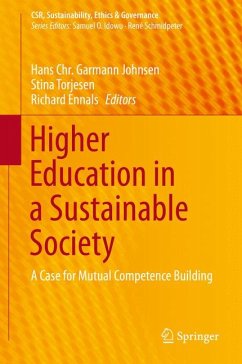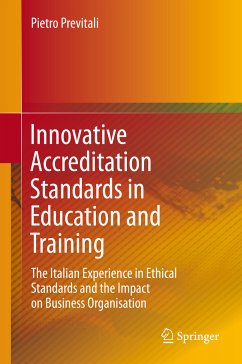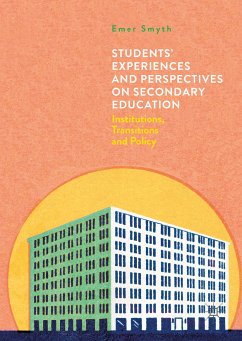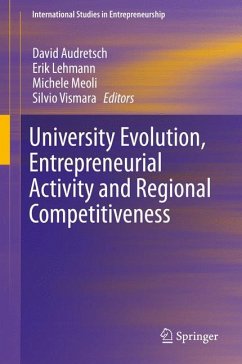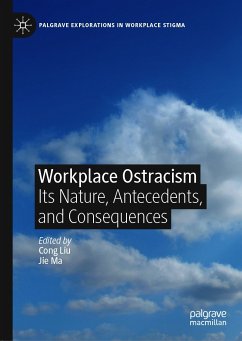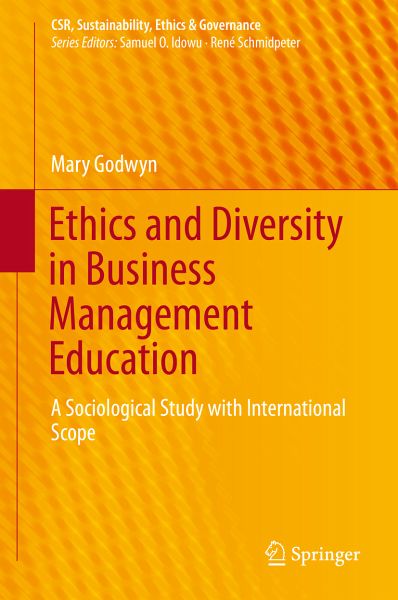
Ethics and Diversity in Business Management Education (eBook, PDF)
A Sociological Study with International Scope
Versandkostenfrei!
Sofort per Download lieferbar
40,95 €
inkl. MwSt.
Weitere Ausgaben:

PAYBACK Punkte
20 °P sammeln!
This book examines business education from the perspective of the social sciences and humanities, specifically sociology and ethics. In particular, it offers the rare combination of liberal arts and business management education which is used to investigate how aspects of business education might be responsible for and connected to the distribution of wealth that currently dominates the global economy.Through interviews with business ethics faculty members, students, and graduates around the world, as well as attendance in business ethics classes and examination of classroom materials, the aut...
This book examines business education from the perspective of the social sciences and humanities, specifically sociology and ethics. In particular, it offers the rare combination of liberal arts and business management education which is used to investigate how aspects of business education might be responsible for and connected to the distribution of wealth that currently dominates the global economy.
Through interviews with business ethics faculty members, students, and graduates around the world, as well as attendance in business ethics classes and examination of classroom materials, the author presents patterns of theory, perspectives and outcomes from culturally and geographically diverse business schools. This research provides insights into how business ethics educators are responding to the growing diversity in student populations and the dual crises of environmental destruction and lack of ethical stewardship.
The book also discusses alternative discourses within business schools and makes recommendations for future improvements.
Through interviews with business ethics faculty members, students, and graduates around the world, as well as attendance in business ethics classes and examination of classroom materials, the author presents patterns of theory, perspectives and outcomes from culturally and geographically diverse business schools. This research provides insights into how business ethics educators are responding to the growing diversity in student populations and the dual crises of environmental destruction and lack of ethical stewardship.
The book also discusses alternative discourses within business schools and makes recommendations for future improvements.
Dieser Download kann aus rechtlichen Gründen nur mit Rechnungsadresse in A, B, BG, CY, CZ, D, DK, EW, E, FIN, F, GR, HR, H, IRL, I, LT, L, LR, M, NL, PL, P, R, S, SLO, SK ausgeliefert werden.




